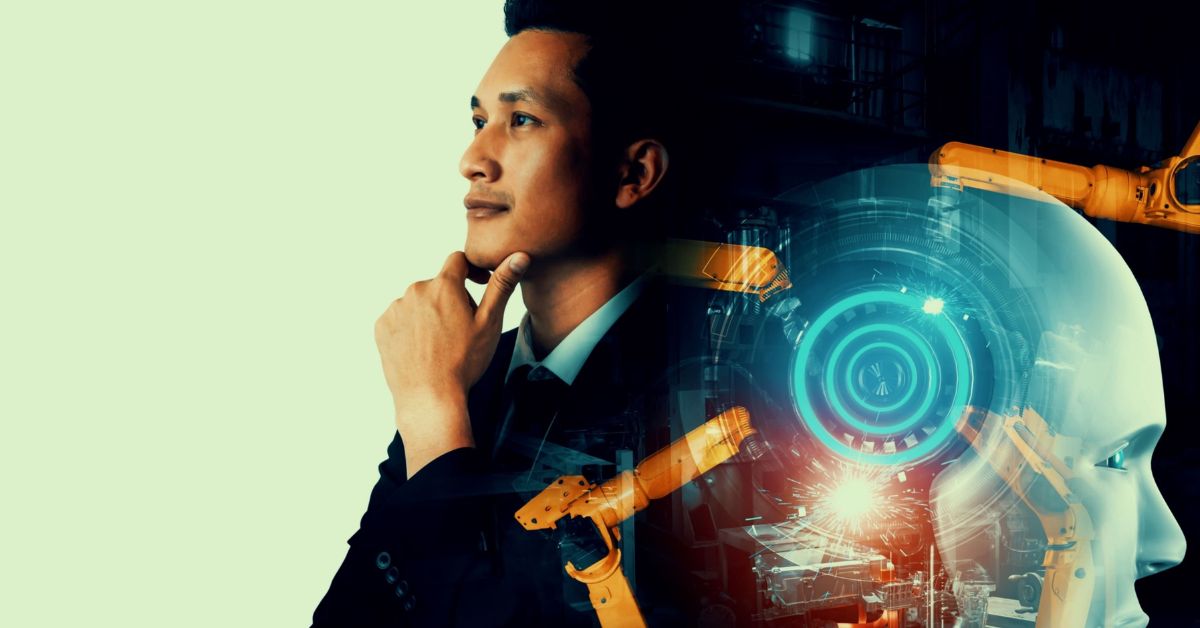Artificial Intelligence (AI) is a rapidly growing field imprints you can see in almost every field of work. Chances are you are already using some of the AI abilities within your work processes.
AI allows you to automate most of your work and helps with analysis. It has redefined how you perform daily tasks and make decisions. It is clear that AI has transformed how you handle your workflows, but there is also a significant area that it has affected which is your soft skills.
At first glance, it may seem like AI and soft skills are not supportive of each other. AI displays logic, data, and efficiency and soft skills are more about communication, empathy, and problem-solving.
But there is a way you can manage both of these contrasting subjects and make them go hand-in-hand. As the workplace becomes more tech-driven, the demand for the ability to utilize AI as well as soft skills becomes necessary.
AI is a machine and machines are best at performing routine tasks, with human however, what sets you apart is your ability to collaborate, think creatively, and adapt to change.
In this article, we’ll explore how AI is impacting essential soft skills, why they matter, and how you can future-proof yourself for the AI-driven workplace.
Why Soft Skills Matter in an AI-Driven Workplace
Soft Skills have emerged as the foundation for success in the workplace especially in an environment that is now driven primarily by the efficiency of AI.
AI can process a massive dataset and automate repetitive tasks, but it cannot connect, empathize, and build trust with others which primarily drives relationships.
The business now values professionals who can balance their technical skills with human-centric abilities like emotional intelligence, collaboration, and adaptability.
These skills are something that AI cannot offer but it can complement this ability and amplify it potential, ensuring you a more balanced and effective workplace.
The Human-AI Collaboration
Many people have this popular misconception which is that AI will replace jobs and any human interaction. It is wrong!!! AI is not here to replace you- It is here to improve your capabilities.
But the key here is to learn how to work alongside an AI tool effectively. For instance, while AI can analyze trends and suggest solutions, it still requires your creative mind and judgment to execute ideas that resonate with people.
Any professional who excels at bridging the gap between AI and human needs will lead the way. It is about harmonizing, where technology handles tasks at its best while humans focus on innovation, leadership, and strategic thinking
Top Soft Skills That AI Cannot Replace
AI is an impressive technology with amazing capabilities, but some skills are irreplaceable. It is something that cannot be replicated by a machine. Here are some of the skills that AI cannot replace-
• Emotional Intelligence- The ability to empathize, manage emotions, and build relationships is a human tendency that AI cannot perform
• Critical Thinking – An important aspect of critical thinking is intuition and an AI cannot develop intuition
• Adaptability – Humans excel at navigating uncertainty and embracing change
• Communication – Conveying ideas with clarity, emotion, and intent is a skill that machines cannot master
How AI Is Changing Communication and Teamwork
AI tools are changing the way we work together by making tasks easier and keeping teams organized. Things like AI project management apps, virtual assistants, and automated reports help everyone stay on the same page.
But here’s the thing: real communication is still about people. It’s about listening, solving problems, and showing you care. If you can mix technology with good communication skills, you’ll be a big asset to any team.
Adaptability
AI is shaking things up in almost every industry, so being adaptable is a must. New tools and technologies pop up all the time, and you need to stay open to learning.
If you can roll with the changes, learn new skills, and use AI to boost what you do, you’ll stay ahead. It’s not about fighting AI—it’s about growing with it.
Creativity in the Age of Automation
AI can help with tasks like analyzing data or coming up with ideas, but true creativity comes from you. Whether you’re designing something new, writing a great story, or solving a tough problem, your imagination and understanding of people make the difference.
Since AI takes care of repetitive stuff, you have more time to focus on creating things that truly stand out.
Emotional Intelligence (EQ) in AI-Infused Workplaces
In a workplace full of AI, emotional intelligence is more important than ever. Being able to understand and manage emotions—both yours and others’—helps you connect with people and create a positive vibe.
AI can crunch numbers, but it can’t show empathy or build trust. Leaders who have strong EQ skills can inspire teams and create success.
Problem-Solving
AI is great at handling data and spotting patterns, but it still needs you to figure out how to use that info in real-life situations. The best results happen when you mix AI insights with your critical thinking and creativity.
When you team up with AI, you can make smarter decisions and solve problems more effectively.
Continuous Learning in a Tech-Driven World
To stay on top of your game in an AI-powered world, you’ve got to keep learning. Upskilling in tech tools and soft skills will help you stay competitive.
Learn how to use AI, improve your leadership skills, and become a better communicator. A mindset of constant learning will keep you future-ready.
How to Future-Proof Your Soft Skills for an AI-Powered Future
To succeed in this new world, focus on skills AI can’t replace. Practice active listening, build your emotional intelligence, and stay adaptable.
Look for chances to work with others, take on creative projects, and challenge yourself to think critically. When you combine these human skills with AI tools, you’ll not only keep up—you’ll lead the way.

Ramanjeet Kaur is a Life Skills and Behavioural Trainer. Her journey to becoming an entrepreneur and starting her career as a trainer in the education industry is an inspiring revelation. She was always passionate about teaching profession from her childhood and started mentoring young kids to develop their personalities.

